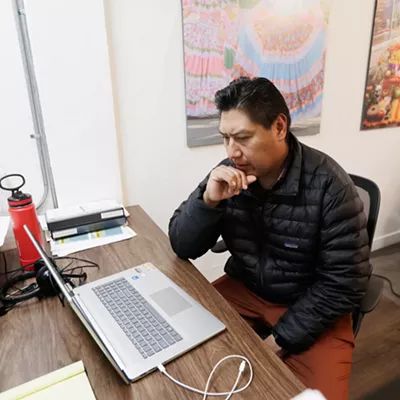PARTIALLY PRIVATIZING WORKERS’ COMP
Workers’ compensation insurance is a lifeline for those injured on the job — a means for them to continue their standard of living and pay their medical bills without going bankrupt. Currently, businesses have two options when it comes to paying workers’ comp: self-insurance for corporations with sufficient financial ability, or a state-administered solution funded via the Labor and Industries tax deducted from your paycheck.
Initiative 1082 would establish a third, private alternative. Proponents of the initiative say allowing private insurers to wade in will increase competition, driving premiums down, as well as providing tax relief by not forcing workers to pay the L&I tax.
Those opposed to the measure, including state Insurance Commissioner Mike Kreidler and state Auditor Brian Sonntag, argue the initiative gives preferential treatment to the private insurance companies, which would be allowed to set their own rates with virtually no oversight. All the money saved by the employees — by not paying L&I — will be borne by the employers. The state Office of Financial Management put it bluntly: “Losses will be absorbed by employers, injured employees and medical providers.”
GREENING OUR SCHOOLS (AND TAXING BOTTLED WATER)
After passing with just more than 60 percent support in the state House and Senate, a proposal to extend the sales tax on bottled water to fund energy-efficient school construction now falls to the voters.
Those in favor of Referendum Bill 52 argue the measure would increase student safety by helping to remove asbestos, mold and other toxic substances (though that’s not actually the point of the bill), while also creating new construction jobs. The state would also be saving money, as only those projects that will generate savings greater than the project’s cost can receive funding — though it’s worth noting that those savings are cumulative, covering the project’s projected lifespan.
Opponents argue now is not the time for the state to be assuming more debt. They point to the per capita debt for each Washingtonian — $2,226 in 2009, according to Moody’s Investment Services — being higher than the national average.
Though another initiative, I-1107, would repeal the tax on bottled water, the two are not contradictory. If both are approved, the construction would still go forward, just without the bottled-water tax as a dedicated revenue stream.
DENYING BAIL TO FELONS
Substitute House Joint Resolution 4220 proposes to amend those passages of the state constitution concerning the setting of bail for those charged with crimes “punishable by the possibility of life in prison” and who exhibit a propensity for violence. Currently, state law only allows bail to be denied for those charged with aggravated first-degree murder.
Judges can currently impose “any condition other than detention” when setting bail, and those in favor of the bill cite a “number of high-profile criminal tragedies” in recent years for changing those rules — though the legislative record indicates they’re primarily referring to one.
In November 2009, Maurice Clemmons shot four police officers in a coffeehouse in Lakewood, Wash., while on bail with nine pending felony charges. Of those charges, only one (second-degree rape of a child) might have made him eligible to be detained under Washington’s “three strikes” law.
Opponents of the amendment say it undermines the presumption of innocence afforded to all accused criminals under the Constitution. Judges have the ability to consider public safety, criminal activity and flight risk when setting bail, and to allow them to detain people without trial increases the chances that innocent people will be locked up.
RECALCULATING DEBT INTEREST PAYMENTS
In a time of economic woe, it should come as no surprise much of the ballot is devoted to the state’s finances, especially the state debt, which is capped by the state constitution. Senate Joint Resolution 8225 would not alter that limit, but it would change the way the interest on the debt is calculated.
Proponents, including state Treasurer Jim L. McIntire, say the reason for the amendment is to make the bonds that the state sells eligible for “Build America Bonds,” a new federal subsidy that pays 35 percent of the interest on taxable state bonds. This amendment would allow the state to count only the money it pays on the bonds, not including the federal subsidies. Both state transportation and local government bonds were already eligible last year, and the state saved more than $63 million on transportation projects alone.
Opposition to the amendment comes from state Republican representatives, including 2nd District Rep. Jim McCune and 44th District Rep. Mike Hope. Their statement says the amendment amounts to an “accounting gimmick” that would allow the treasurer to assume more debt.





















